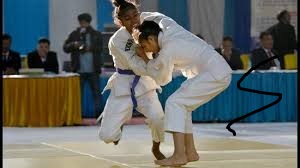Physical Benefits
Strength and Flexibility
There are many benefits of practicing karate; the most apparent of which are increased strength and flexibility. When practicing karate a person is not restricted to a particular muscle group; there is a touch of exercises that affect different muscles hence improved strength. With the punches, kicks and stances, muscles in the arms, legs, the abdomen and the back must be contracted. The routine movements of Karate training contribute towards the endurance of muscles and the muscle strength.
Coordination and Balance
Coordination and balance The training we receive in karate also improves co ordination and balance required to execute techniques. The exercises of kihon, kata, and kumite are accompanied by the certain, measured movements and the correct timing. This is where students are trained on how to get the movements of their bodies right so as to deliver strikes, blocks and kicks correctly.
Stance is one of the components in karate, many moves require the shifting of weight from one part of the foot to the other. Stability is built through practicing stances including zenkutsu dachi, a front stance, and kiba dachi a horse stance. Drawing which are mae geri (front kick) or yoko geri (side kick) while standing on one leg makes balance the muscles required for stability.
Mental and Emotional Benefits
Focus and Concentration
The training in karate enhances concentration so that the techniques and goals of the art can be mastered. Of the three, kata demands the most focus because a particular series of coordinated motions must be executed with certain tempo. When making each movement and learning how to do it correctly, students learn to think and focus for longer periods.
Stress Relief
In this regard, karate is a perfect means of stress relieve because the participants can let go of the strain and become psychologically healthier. From physical activity of karate training, there are emotions being triggered such as endorphins which are natural mood boosters. Aerobic exercise is also important in lowering stress hormones including cortisol and helps in calming the mind.

Social and Community Benefits
Building Relationships
Karate also promotes social relationship among practitioners since the practice forms a large group of people who understand each other’s strengths and weaknesses. Training in a dojo therefore entails practicing with other people, practicing with pads and focus mitts and performing in groups. These interactions foster team work, and respect among members.
The dojo transforms into a source of social support in which everyone supports all others towards realization of their set objectives. Training makes you go through a lot together and this makes most of them develop a close friendship with one another. Oftentimes, the karate dojos have social events, competitions and seminars in addition to fostering a close-knit community.
Sense of Belonging
Karate also offers the carried value in terms of inclusion in the larger martial arts fraternity. Joining a dojo also gives one a certain kind of pride and ownership of the achievements of one’s martial art. The belt ranking system that distinguishes the progression of the practitioners as well as their skills provides practitioners with tangible goals to aim for, hence the feeling of achievement.